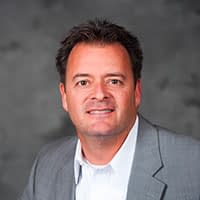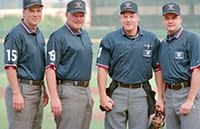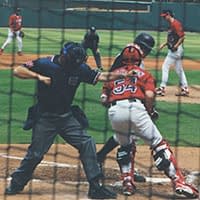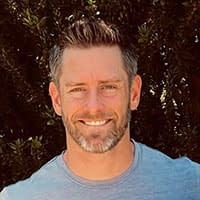Baseball is underway with the start of the 2023 season, so we caught up with Kraig Sanders to find out more about how he went from umpiring in the minor leagues to sliding into his current role as PrismHR’s director of partnerships.
Today, Sanders is called upon to help PrismHR’s robust network of Marketplace partners offer integrated HR solutions—human resources not home runs; well, on second thought, actually both—to PrismHR customers, their small and mid-sized businesses and their employees. But from 1990 to 2000 he was just focused on getting the calls right on the baseball diamond as an umpire. Out, safe, ball, strike and, occasionally, balk or “You’re outta here.”
Whoosh, zip, smack.
With baseballs regularly leaving a pitcher’s hand at 90 to 100 mph, a professional hitter has less than half a second to decide whether to swing or take a pitch, so in the time it took you to read those three words, a ball would have already slammed into a catcher’s mitt—and perhaps even been heading back to the pitcher via a return throw from the catcher.
For Sanders, who lives in the Denver area with his wife, Cathy, thinking fast comes with the territory in the HRO space and on the baseball diamond.
While his twin 20-year-old sons, Jacob and Eli, were more interested in soccer, Sanders spent his high school days mostly focusing on baseball. He played catcher on his baseball team. It’s a position that requires a lot of thinking to determine the pitch. It also takes awareness when it comes to thinking about how a play could develop or if, say, a runner might be looking to steal a base. It also requires a good deal of managing prowess in terms of helping put players and pitchers in the best position to succeed. While most young people avoid the catching position because it forces them to squat behind the plate for hours at a time and have balls hurled at them, sometimes wildly, Sanders was never afraid of getting out of his comfort zone and into the trenches.
It’s not unlike how he digs in and really works with the PrismHR Marketplace partners to help make the program a success. Whatever curveball he faces, he never lets a good pitch get past him.
“The thing I always liked about catching,” he said, “is you were always involved in every play, no matter what. You can play second base or left field and go half a game and never touch the ball.”

PrismHR Director of Partnerships
Being “in” on every play is what has defined Sanders’ career then and now.
During college, his interests changed, and he no longer wanted to pursue the sport of baseball as a player, but that didn’t mean he was finished wanting to put a mask on and get behind the plate. His older brother, Keith, was a minor league umpire, and that inspired Sanders to pursue the same career. To make money in college, he started umpiring youth baseball games during the summer. Eventually he would make the leap to umpiring in the minor leagues where he learned getting hit by a foul tip hurts more as an umpire than as a player because you’re “locked in on the pitch” and not necessarily able to protect yourself the same way.
Baseball in the ’90s

The 1990s were an interesting time in baseball history, of course, highlighted by a now-controversial home run race and the 1994 players’ strike, which ended the season before a World Series champion was named. Strikingly, major league umpires went on strike at the beginning of the 1995 season, so the opening games were played with minor league umpires at the helm. Unfortunately, Sanders wasn’t one of them; he was still paying his dues.
The road to making the major leagues as a player is tough for most people since baseball only allows its 30 teams to have 26 players at a time (with a couple of more players added later in the season), which means there are only 780 spots available for most of the season.
For umpires, it’s even more selective.
There are currently 76 full-time umpires, some of whom have been in the major leagues for over 20 years, so the route to advancing from the minor league level to the major leagues is limited. When Sanders made his way up from Class A to Double-A and then Triple-A, the last step before the majors, there were only 62 MLB umpires, so even fewer opportunities. Many umpires, like Sanders, don’t make it to “The Show,” although in Sanders’ case he did work some spring training games with major leaguers. He even worked with some well-known players in the minors like Mark Mulder, Barry Zito and Tim Hudson who would go on to form the Big 3 starting pitchers for the Oakland A’s in the early 2000s, and a future Hall of Famer who went by the nickname “Big Papi.”
He also dealt with the usual noise from fans, players and managers when a call didn’t go their way. Still, he always knew how to de-escalate a situation. One time he remembers he was the crew chief in a game and a rookie umpire called what should have been a home run a foul ball. The ball clearly hit the foul pole, which is actually fair, of course, but the newbie clearly missed it. “The Nashville dugout exploded,” Sanders remembers, and “the guy who hit the home run was a catcher who had some experience in the big leagues.”
The catcher knew he hit a home run, so he wanted to go back into the dugout to prove his run counted. Sanders, wanting to protect his fellow umpire and follow the ruling on the field, warned the player about showing up the other umpire. Sanders was supporting his teammate even though he knew the young ump had made a mistake.
“I said, ‘If you go in the dugout, I’m going to run you,’ ” meaning kick the player out of the game. “He’s like, ‘Well, hang on. Why? It’s a home run.’ I said, ‘Right now it’s not a home run. It’s a foul ball.’ ”
Only after the other umpire asked him for his opinion if it was really fair or foul, performing his duty as the crew chief, Sanders called it a home run. But he followed protocol to a T; it was foul until it was officially challenged.
Still, the manager wouldn’t let it go. Wanting to make a point, he continued to argue the original call, so Sanders had to kick him out of the game even though the call eventually went their way.
His Call Up to the PEO World
For 10 years, Sanders was on the road and staying in hotels every summer hoping for his shot at the big leagues.

Throughout his career, winters were a time to work outside of the game. A minor league umpire’s salary was not nearly enough to support him for the full year, so he had to get a job every offseason.
“The first couple of years I went to a temp agency and I did stuff like unload trucks and all kinds of different temp jobs and just going back and forth. Then one year I went and I spoke to the same lady and I said, ‘Hey, I want something that’s more of an office-environment-type thing.’ Well, lo and behold, they sent me to a PEO that was headquartered in Little Rock, Arkansas.”
It was his first call up to the world of PEOs, but it would not be his last. He worked there two more winters after that, and made valuable connections in the company. They even used a product called Summit, which PrismHR would later acquire in 2017.
In his last full season in the minor leagues, he started to see the writing on the wall. He wasn’t called up to fill in at the major league level like some other umpires he knew did, so he was “99% sure” his career in baseball was ending.
After leaving the game after his 10th and final season, Sanders knew someone at Summit who used to work at the PEO he did, so he called her to ask if they were hiring. She connected him with the owner, and they hit it off right away. He was hired in September 2000 and officially joined PrismHR in 2017 following the acquisition. Today, Sanders works directly with PrismHR Marketplace partners, helping PrismHR customers find integrated solutions that serve their small and medium-sized business (SMB) clients and their employees.

ZayZoon VP of Sales
Shane Edrington is ZayZoon’s vice president of sales. The company which offers earned-wage access solutions was recently named PrismHR Partner of the Year for 2022. He had some thoughts on how Sanders helps make the partnership program a home run.
“Working with Kraig is a pleasure,” he said. “Maneuvering through the initial stages of a partnership can be tricky, each side feeling one another out and attempting to build a relationship, while transparently advocating for their side. Kraig’s direct communication style paired with his easy-going personality helps bring trust to the process early. Trust is a core value at ZayZoon, so important that we establish that both internally and externally. We look forward to continuing to grow and evolve our relationship with PrismHR, largely thanks to Kraig.”
Partnerships and Umpiring
So are there similarities between working as an umpire and dealing with partners? Sanders answers in the affirmative.
“Umpiring teaches you to learn to work with people outside your organization,” he says. “As an umpire you work with players, managers, general managers and the league office. It was important to build relationships in these areas to be successful, especially in some of the sticky situations that can occur during the season.” “Even though players and umpires didn’t always agree on everything, you have to learn to work together because I’m going to be back on the field tomorrow night as an umpire. They’re going to be back on the field tomorrow night as the catcher or the second basemen or whatever the case may be.”
The number of PrismHR Marketplace partners has grown about 600% since Sanders started. There were about 10 when he got here and about 70 now, and that number continues to grow with his help.
“I think I was good enough to umpire in the major leagues,” Sanders said, but he knows he made the right call when deciding to enter the PEO industry and now as he helps empower PrismHR’s partnership program. Thanks to the awareness and management skills he developed as a catcher and then as a professional umpire, the PrismHR Marketplace is always swinging for the fences.
James Tehrani is PrismHR’s digital content marketing manager. He is an award-winning writer and editor based in the Chicago area.




